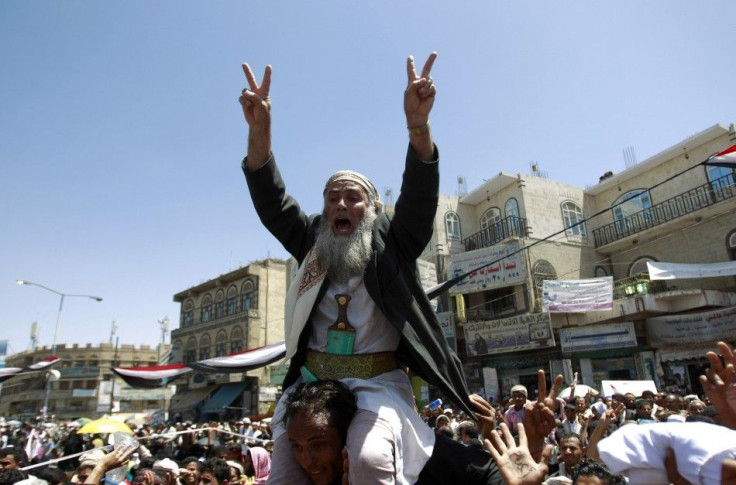20 protesters killed in Yemen's Taiz city

Yemeni President Ali Abdullah Saleh's forces killed at least 20 protesters in the city of Taiz on Monday, the Voice of America reported, citing witnesses.
The report says protesters calling for Saleh's ouster were killed as troops stormed a protest camp. Earlier, there were reports that dozens were killed on Sunday when security forces opened fire on an opposition rally.
Apart from Taiz, intense fighting has been going on in the city of Zinjibar. In the capital Sana'a, where more than hundred people have been killed in street battles between the government and tribal forces, an uneasy truce held despite the Opposition's pledge that they were battle-ready if the government forces broke ceasefire.
In Zinjibar, the Al-Qaeda has reportedly tightened grip. “About 300 Islamic militants and al-Qaeda men came into Zinjibar and took over everything on Friday,” the Taipei Times quoted a resident as saying.
According to a report by the American Enterprise Institute, Al Qaeda in the Arabian Peninsula has gained operating space as Yemeni security forces have pulled out of al Qaeda strongholds to protect the regime's interests.
Suspected al Qaeda militants have taken over the southern city of Zinjibar in Abyan governorate. Yemeni security forces have been redeployed from restive regions in the south to the capital to protect the Yemeni regime, the AEI report said.
Saleh is also facing accusations that he is seeking Al-Qaeda's help in facing down the surging protesters seeking his removal from office. Meanwhile, the Yemeni opposition has accused bigger neighbor Saudi Arabia of propping up the tottering regime of Saleh.
Heavy fighting between government forces and tribesmen outside of Yemen's capital has broadened the conflict, according to the AEI.
Saleh passed up an occasion to ease the fighting by refusing to sign a transition agreement on May 22. He refused to sign the agreement citing the absence of the Opposition, which has stubbornly refused to do anything with Saleh until he steps down.
Analysts now discount the chances of a peaceful transition of power in the country. The opposition, united in its demand for the president's resignation, has not been able to force Saleh out of power, decreasing the likelihood of a relatively peaceful transition, says AEI.
© Copyright IBTimes 2025. All rights reserved.





















